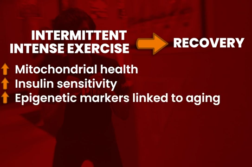Seth Cohen, MD, MSc, Medical Director, Infection Prevention and Employee Health, Clinic Chief, Infectious Disease & Travel Medicine, Northwest Hospital & Medical Center, Clinical Assistant Professor, Division of Allergy and Infectious Diseases at the University of Washington talks about penicillin allergies and how they can be identified with a simple test.
Interview conducted by Ivanhoe Broadcast News in April 2019.
Tell us a little bit about people who think they’re allergic to penicillin.
COHEN: In the United States about 10 to 20 percent of people have been told at some point in their life or are labeled as being penicillin allergic. But in reality about 95 percent or higher of these people aren’t actually allergic to penicillin.
Why are they told that?
COHEN: Oftentimes they may either have a family history of being allergic to penicillin or they were told by their parents that when they’re a little that they had a rash to penicillin and that they should never take it again. Sometimes people can also have intolerances to antibiotics like diarrhea or an upset stomach, which isn’t a true allergy, but they get listed as having an allergy on their chart.
Which is a problem because penicillin is a powerful drug. Can you talk a little bit about that?
COHEN: It’s a big problem and the CDC has identified this as an area of interest where people need to get on the right antibiotic as soon as possible. And if you’re labeled as having a penicillin allergy you may be unnecessarily placed on a broad spectrum antibiotic that can lead to side effects or may be less effective than something in the penicillin family.
It really is not laughable. It actually could be dangerous.
COHEN: It is a very serious issue, particularly patients who are elderly or immuno suppressed or hospitalized or even our obstetric patients. It’s really important for them to be on the appropriate antibiotic. And I’d say even for patients who are undergoing surgery, our job in infection prevention and infectious disease is to prevent the risk of infections after surgery. And so if people do not get the right antibiotic before surgery it actually increases the risks of infectious complications afterwards. And that’s why we’re so focused on making sure people get the right antibiotics at the right time.
Tell us about the skin test.
COHEN: Skin testing is a rapid office based procedure where we can delist somebody’s penicillin allergy. That means we can tell them in the office that they do not have a penicillin allergy and then immediately remove that label from the chart. Penicillin skin testing has two steps. The first is taking a very thorough history. We want to know when did the allergic reaction happen. What kind of reaction was it and what were they treated with, those sorts of questions. Then we can help decide whether skin testing is actually necessary if we deem that skin testing is necessary. Then we move on to a second visit where the patient can undergo skin testing so the skin testing itself takes about an hour and it’s composed of two different types of testing. There’s a skin prick and then there’s an intra dermal portion. In general it is very well tolerated by the patients. The needles are very very small that we use. And people do great with it. And after the tests are read at 15 minutes, we do another round of testing and we read the second round of tests at 15 minutes. And if the patient does not have any reaction then we typically proceed to give them either a pill of penicillin or amoxicillin and then we watch them for another hour. And if they do great with after taking the pill then we go into their medical record and remove the label of penicillin allergy right there in the office. How new is a test. So the test has been around for a while but unfortunately it has not been widely adopted but it has been shown to be very safe and cost effective. And it’s been shown to – and it’s been shown to reduce the risk of antibiotic associated infections like C. diff as well as antibiotic antibiotic resistance and surgical complications. So it has been around for a while but people just have not been using it.
What are people’s reaction when you tell them that they’ve thought for 20 years that they’re allergic but they’re not?
COHEN: A lot of people are shocked to learn that they’re not allergic to penicillin and many people are ecstatic to learn that they’re able to take these antibiotics, especially if they have serious infections that are better treated by penicillin or a relative of penicillin.
What haven’t I asked you that you think should be included?
COHEN: I may not have mentioned this but about 80 percent of people actually lose their allergy to penicillin after about 10 years. So that’s why many people grow out of it or are no longer allergic to it even though they may have been allergic to it at one time. We and the CDC recommend allergy evaluation for anybody who’s been told that they have a penicillin allergy, both because it’s important on a personal level to know what antibiotics you can and cannot safely receive but also as a public health issue. It reduces costs in the hospital and reduces risks of complications in the hospital by making sure that people don’t actually have penicillin allergies.
Can it go the other way? Can you turn 35 and become allergic?
COHEN: Yes, it’s possible to develop penicillin allergies later in life, particularly if you are exposed to multiple courses of antibiotics.
END OF INTERVIEW
This information is intended for additional research purposes only. It is not to be used as a prescription or advice from Ivanhoe Broadcast News, Inc. or any medical professional interviewed. Ivanhoe Broadcast News, Inc. assumes no responsibility for the depth or accuracy of physician statements. Procedures or medicines apply to different people and medical factors; always consult your physician on medical matters.
If you would like more information, please contact:
Seth Cohen, MD
206-668-1630
Sign up for a free weekly e-mail on Medical Breakthroughs called First to Know by clicking here




